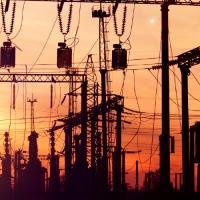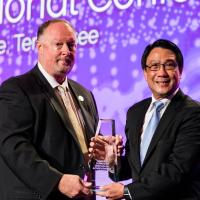Looking for research and development projects made possible through DEED grants and scholarships? Check out the DEED Project Database.
Trying to find information about specific public power utilities? If you are member, check out the Public Power Directory.
California community choice aggregator East Bay Community Energy (EBCE) has entered into its first geothermal power purchase agreement with Fervo Energy, a geothermal energy company.
A group that supports municipalization efforts in Ann Arbor, Mich., recently said that a request for proposals (RFP) for a municipalization feasibility study falls short on several fronts.
The Biden Administration on June 6 said it would authorize the use of the Defense Production Act and leverage federal procurement to boost domestic solar energy technology production.
Soaring natural gas prices ahead of the summer cooling season are fueling growing concerns in the electric power industry.
Washington D.C., June 8, 2022— Statement from American Public Power Association President & CEO Joy Ditto: APPA appreciates the Biden Administration’s focus and action on supply chain issues, which threaten...
Nashville, Tennessee, June 14, 2022 — Twenty-Three individuals and eight utilities were recognized for service to the American Public Power Association and the public power industry during APPA’s National Conference...
Changes in workers’ attitudes about work offer an opportunity to rethink how we shape our organizations in ways that appeal and nurture our most important resource, our employees.
Public power utilities are taking strategic and creative approaches to preparing their organizations for a new generation of leaders.
Military personnel transitioning to civilian work can find a continuing sense of mission by working at public power utilities.
Joint action agencies provide a range of vital services that would otherwise be out of reach for small resource-constrained utilities.


